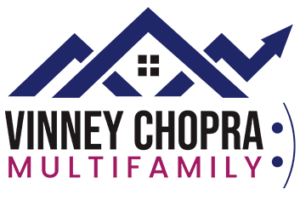Your guide to mastering senior housing compliance: Discover the top 5 tips for staying ahead of regulations and ensuring resident safety. Read more here – Read More
To promote senior housing regulatory compliance, stay informed on evolving laws by appointing a dedicated compliance officer and engaging with industry resources. Continuously train your staff to decrease violations and keep standards high. Conduct regular audits to identify and address non-compliance issues early. Implement technology solutions like real-time data sensors and panic buttons to streamline processes and enhance safety. Maintain detailed documentation of resident evaluations, care plans, and incidents to ensure adherence to regulations. By focusing on these areas, you’ll foster trust within your community and uphold the highest operational standards. Discover more insights to strengthen your compliance strategy.
Key Takeaways
Appoint a compliance officer to monitor and adapt to changing laws and regulations.
Conduct regular staff training sessions to ensure up-to-date knowledge and decrease compliance violations.
Perform frequent audits to identify and address non-compliance issues early.
Implement technology solutions like HALO Smart Sensors and reporting systems for enhanced compliance and operational efficiency.
Maintain detailed and regularly updated documentation of resident care, staff qualifications, and incident reports.
Stay Informed on Regulations
Staying informed on regulations is crucial for guaranteeing compliance in senior housing, and it often requires meticulous attention to detail. Appointing a compliance officer is a critical step in this process. This individual will be responsible for monitoring changing laws and regulatory updates, securing your organization maintains awareness and adheres to all relevant regulations.
Given the variability of regulations by state and locality, continuous monitoring is non-negotiable. Your compliance officer must stay current with these changes to avoid penalties and safeguard the safety of residents. Additionally, consider leveraging commercial real estate investing tips to better understand market trends and diversify your portfolio in a manner compliant with regulations. They should regularly attend training sessions and engage with industry resources to maintain up-to-date knowledge.
Effective communication of regulatory updates to staff is another key responsibility of the compliance officer. Regular staff training sessions should be conducted to keep everyone informed about new regulations and best practices. This proactive approach enhances regulatory compliance and guarantees high-quality care for residents.
Train Staff Continuously
Regular staff training is a cornerstone of regulatory compliance in senior housing facilities. Ensuring your team is well-versed in medication management, safety protocols, and resident care is essential. These training programs are pivotal to minimize compliance risks, as untrained staff can inadvertently lead to regulatory violations. In fact, facilities that conduct ongoing education sessions report up to a 30% decrease in such violations. Given the emerging trends in senior living, it is crucial to continually update training programs to integrate innovative care models and technological advancements.
Your training programs should be dynamic, addressing changing regulations to keep your staff updated. Over 60% of senior housing providers revise their training materials annually to reflect the latest standards. By doing this, you guarantee that your team remains knowledgeable about the most current practices and requirements.
Investing in continuous staff education not only enhances compliance but also leads to higher staff retention rates. Employees who feel competent and supported are more likely to stay, which in turn improves the overall quality of resident care. By prioritizing regular training, you create a safer environment for both residents and staff, thereby maintaining high standards of care and reducing risks associated with non-compliance. Don’t overlook the importance of well-structured, ongoing education in safeguarding your facility’s reputation and operational integrity.
Conduct Regular Audits
Conducting regular audits is crucial for ensuring compliance and operational excellence in senior housing facilities. By routinely performing audits, you can identify non-compliance issues early, preventing potential risks to residents and avoiding costly penalties. These inspections, whether internal or conducted by third parties, cover every aspect of the facility’s operations, from healthcare services to environmental safety. Regular audits also help in managing increasing operational costs by identifying inefficiencies that can be corrected to maintain profitability.
Regular audits provide management with detailed findings, allowing for timely adjustments to meet regulatory standards. This proactive approach not only guarantees compliance but also enhances the overall functioning of senior living communities. When you address audit results promptly, you contribute to a safer, more efficient living environment for residents.
Moreover, audits play a critical role in improving operations by highlighting areas that need improvement. By continuously refining processes and adhering to required standards, you uphold the quality of care and safety expected in senior living facilities. Failing to conduct these audits can lead to non-compliance, compromising the well-being of residents and the facility’s reputation. Making regular audits an integral part of your operational strategy is essential for maintaining high standards and fostering trust within the community.
Implement Technology Solutions
Integrating technology solutions into senior housing facilities can greatly strengthen regulatory conformity and operational efficiency. Implement technology like the HALO Smart Sensor to detect motion, occupancy, and aggression. These sensors are indispensable for enhancing safety measures and compliance by providing real-time data on resident activities. This data allows you to monitor and respond to incidents swiftly, ensuring adherence to regulatory standards.
Utilizing reporting systems integrated with technology solutions can streamline compliance processes. Accurate documentation is pivotal for regulatory compliance, and these systems facilitate seamless data collection and reporting. This ensures you meet regulatory requirements without the hassle of manual record-keeping.
Incorporating panic buttons as part of your technology solutions can markedly improve response times during emergencies. Quick responses are essential for resident safety and can make a substantial difference in critical situations. This integration not only enhances emergency procedures but also provides peace of mind for both staff and residents.
Maintain Detailed Documentation
Implementing technology solutions effectively sets the stage for maintaining detailed records, a cornerstone of regulatory adherence in senior housing. Accurate and thorough documentation is vital for guaranteeing compliance in senior living facilities. You need to meticulously record resident evaluations, care plans, staff qualifications, training logs, and incident reports. This not only supports quality care delivery but also ensures you’re prepared for regulatory audits.
Documenting medication administration, health evaluations, and resident interactions is crucial. These records serve as evidence of adherence to regulatory requirements and best practices. Regularly review and update this documentation to identify areas for improvement and to maintain adherence standards. A proactive approach in managing these records can reveal gaps before they become compliance issues.
Training your staff on the importance of detailed documentation is also essential. Make sure they understand how to accurately record information and why it matters. This includes documenting every aspect of medication administration and resident interactions.
Staying diligent with your records helps you meet regulations and provides a clear, all-encompassing view of each resident’s care. It’s not just about compliance; it’s about delivering the safest and highest quality care possible.
Frequently Asked Questions
How to Improve Regulatory Compliance?
To enhance regulatory compliance, you should implement extensive training programs and conduct thorough documentation audits. Guarantee staff accountability through regular inspections and policy updates. Utilize compliance software for continuous monitoring and efficient incident reporting. Conduct risk assessments to identify potential issues, and develop effective communication strategies to keep everyone informed. These steps create a proactive approach to maintaining safety and adhering to regulations.
What Are the Regulatory Compliance Requirements?
You’d think staying compliant with state regulations and federal guidelines would be a breeze, right? Instead, it requires detailed record-keeping, regular compliance audits, and constant staff training. Policy updates must be frequent to reflect new laws. Protecting resident rights, reporting incidents promptly, and employing effective communication strategies are vital. Non-compliance can result in strict enforcement actions. Your carefulness guarantees a safe environment for everyone involved.
What Measures Do You Take to Comply With Regulatory Requirements?
To adhere to regulatory requirements, you should focus on staff training and continuous monitoring. Regularly conduct policy reviews and update them based on the latest regulation updates. Keep thorough documentation tracking and record keeping for audit preparation. Utilize risk assessment to identify potential issues. Effective communication updates are essential for maintaining compliance. Guarantee compliance monitoring remains active to address any emerging regulatory changes promptly.
Conclusion
By staying informed, training staff, conducting audits, implementing tech, and maintaining documentation, you’re channeling Sherlock Holmes’ meticulousness in your senior housing operations. These steps aren’t just about compliance; they’re about providing exceptional care. Think of each tip as a clue leading you to regulatory peace of mind. It’s a detailed roadmap to success, ensuring your facility remains a beacon of trust and quality in the community. Don’t overlook these essentials—they’re your keys to excellence.

